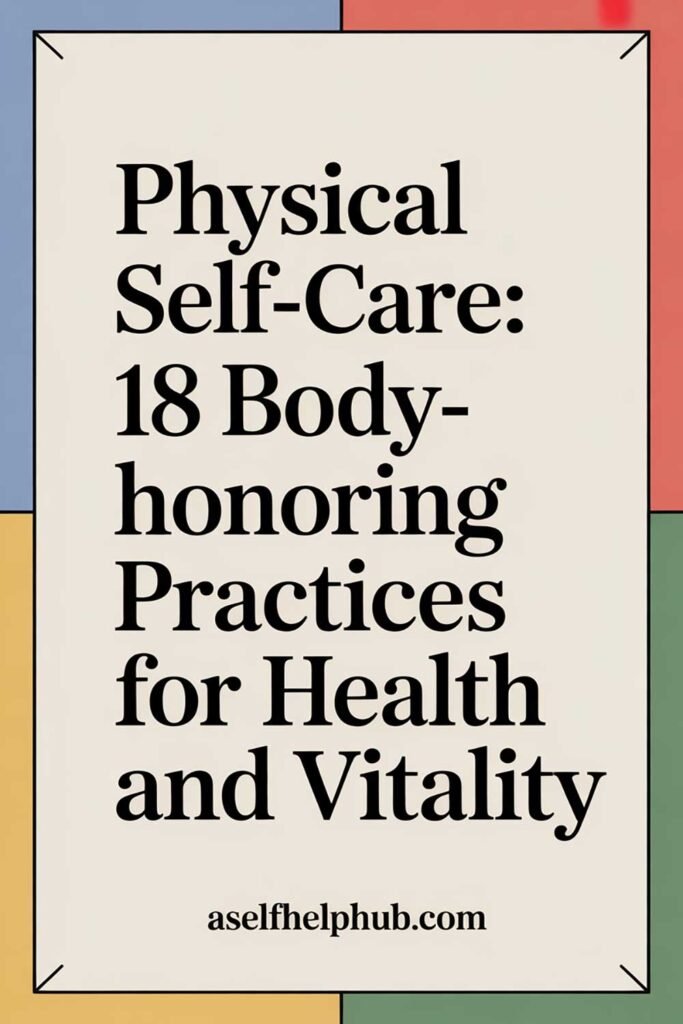Unconventional Self-Help Topics
Exploring Unique Paths to Personal Growth
Traditional self-help topics focus on productivity, confidence, and motivation. While these are valuable, unconventional self-help topics explore overlooked areas of self-improvement that can lead to profound personal growth. By embracing alternative perspectives, individuals can unlock hidden potential and enhance their overall well-being.

Unique and Unconventional Self-Help Topics
1. The Power of Boredom: Unlocking Creativity and Reflection
In a world filled with constant stimulation, boredom is often seen as a negative experience. However, embracing boredom can lead to creative breakthroughs and deeper self-reflection.
How to apply this:
- Set aside time for tech-free solitude.
- Allow yourself to sit with your thoughts rather than seeking distractions.
- Use boredom as an opportunity to spark new ideas.
2. Embracing Discomfort: Growth Through Unpleasant Experiences
Growth often comes from discomfort. Facing fears, tackling difficult conversations, and pushing beyond personal limits can lead to significant transformation.
How to apply this:
- Challenge yourself to do something uncomfortable daily.
- Embrace failure as part of the learning process.
- Reframe discomfort as a sign of progress rather than avoidance.
3. The Benefits of Talking to Strangers
Contrary to social norms, engaging with strangers can boost confidence, create unexpected opportunities, and enhance social intelligence.
How to apply this:
- Start small by engaging in brief conversations with cashiers, baristas, or fellow commuters.
- Approach networking as a chance to learn rather than impress.
- Seek diverse perspectives to expand your worldview.
4. Radical Honesty: Transforming Relationships and Self-Perception
Radical honesty involves speaking the truth openly, even when it’s uncomfortable. This practice can strengthen relationships and increase self-awareness.
How to apply this:
- Practice expressing thoughts and feelings without sugarcoating.
- Set boundaries and communicate needs clearly.
- Accept feedback without defensiveness.
5. The Art of Doing Nothing: Mastering the Power of Stillness
Modern life glorifies busyness, but intentional stillness can enhance mental clarity and reduce stress.
How to apply this:
- Dedicate time each day to being present without distractions.
- Engage in mindfulness or meditation practices.
- Resist the urge to constantly fill empty moments with activities.
6. Cultivating an Alter Ego for Confidence and Success
Many successful individuals use alter egos to enhance performance and navigate challenging situations with greater confidence.
How to apply this:
- Create a persona that embodies the qualities you aspire to have.
- Use this alter ego in situations where confidence is needed.
- Reinforce this mindset through visualization and practice.
7. The Psychology of Letting Go: Releasing Control for Inner Peace
Letting go of control doesn’t mean giving up—it means trusting the process and reducing unnecessary stress.
How to apply this:
- Identify areas where control is causing anxiety.
- Practice surrendering to uncertainty while focusing on what you can influence.
- Develop trust in yourself and the flow of life.
8. Practicing Non-Attachment for Mental Freedom
Non-attachment helps reduce suffering by teaching individuals to enjoy experiences without clinging to them.
How to apply this:
- Observe emotions without becoming consumed by them.
- Accept change as a natural part of life.
- Focus on experiences rather than possessions.
9. Deliberate Solitude: Strengthening Independence and Self-Awareness
Spending intentional time alone fosters self-reliance and emotional resilience.
How to apply this:
- Schedule solo outings or retreats for self-reflection.
- Enjoy activities without the need for external validation.
- Use solitude to reconnect with personal values and goals.
10. Saying ‘No’ as a Self-Help Strategy
Learning to say “no” is essential for maintaining mental health, setting boundaries, and prioritizing personal well-being.
How to apply this:
- Practice saying “no” without guilt.
- Identify obligations that drain energy and limit them.
- Respect personal needs without feeling obligated to please everyone.
11. The Power of Daydreaming: Using Your Imagination for Success
Daydreaming isn’t just escapism—it’s a valuable tool for creativity and problem-solving.
How to apply this:
- Set aside time to engage in structured daydreaming.
- Use visualization to plan and achieve goals.
- Allow imagination to fuel motivation and innovation.
12. Rethinking Failure: Celebrating Mistakes as Learning Tools
Failure is an inevitable part of growth. Reframing failure as a learning experience can boost resilience and innovation.
How to apply this:
- View setbacks as feedback rather than defeat.
- Celebrate progress even when results aren’t perfect.
- Share failures openly to normalize learning from mistakes.
13. Dressing with Intention: The Psychology of Personal Style
Clothing influences confidence and self-perception. Dressing with purpose can enhance mindset and social interactions.
How to apply this:
- Choose outfits that align with personal and professional goals.
- Use fashion as a form of self-expression.
- Dress to reflect your ideal self-image.
14. Practicing Playfulness: The Benefits of Embracing Childlike Joy
Adults often forget the importance of play. Incorporating playfulness into daily life reduces stress and enhances creativity.
How to apply this:
- Engage in hobbies purely for fun.
- Incorporate humor and lightheartedness into daily interactions.
- Approach challenges with a sense of curiosity rather than seriousness.
15. The Science of Small Wins: How Tiny Victories Build Momentum
Focusing on small accomplishments creates motivation and builds confidence.
How to apply this:
- Break big goals into smaller, manageable steps.
- Celebrate progress rather than waiting for major milestones.
- Use small wins to build long-term habits.
The Lasting Impact of Unconventional Self-Help
Embracing unique self-help strategies allows for deeper self-discovery and personal growth. By stepping outside traditional approaches, individuals can cultivate meaningful habits and perspectives that enhance their lives in unexpected ways.
Inspirational Quotes on Unconventional Self-Help
- “Sometimes the most productive thing you can do is relax.” – Mark Black
- “The most important conversations you’ll ever have are the ones you’ll have with yourself.” – David Goggins
- “You have to be willing to look like a fool to become a master.” – Richard Branson
- “Not everything that counts can be counted, and not everything that can be counted counts.” – Albert Einstein
- “What lies behind us and what lies before us are tiny matters compared to what lies within us.” – Ralph Waldo Emerson
Picture This
Imagine a life where you embrace boredom, approach failure with curiosity, and cultivate playfulness. You trust the process, let go of control, and redefine success on your terms. Your unconventional approach leads to breakthroughs, confidence, and fulfillment. How different would your life look if you embraced these unique self-help strategies?
Please Share This Article
If you found this article insightful, share it with others who are open to exploring unconventional self-help strategies.






